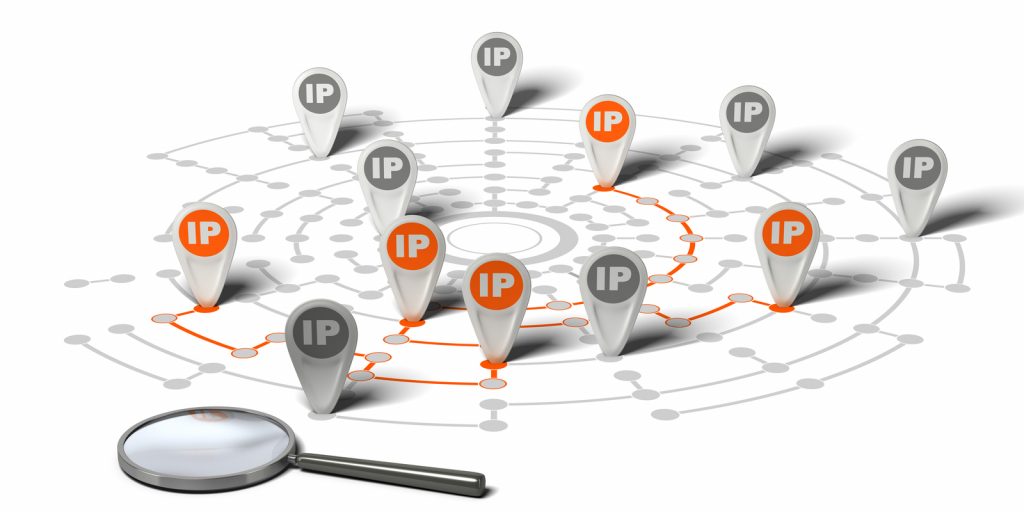
Fraud has become an increasingly prevalent concern in today’s digital landscape. As technology advances, so do the methods employed by fraudsters. To combat this, businesses and organizations have turned to various techniques, one of which is the use of IP addresses for fraud detection.
What is an IP Address?
Before diving into the role of IP addresses in fraud detection, it’s important to understand what an IP address is. An IP address, short for Internet Protocol address, is a numerical label assigned to each device connected to a computer network. There are 2 types of IP address, the IPv4 and IPv6, each have a different IP format and notation. It uses to identify the host and provide the location of the device on the network.
How IP Addresses Contribute to Fraud Detection
IP addresses play a crucial role in fraud detection by providing valuable information about the origin and behavior of online activities. Here are some ways in which IP addresses contribute to fraud detection:
Geolocation Analysis
IP addresses can be used to determine the geographical location of an online user. By analyzing the IP address, businesses can identify the country, region, and the city from which a user is accessing their services. This information is valuable in detecting fraudulent activities, as certain regions or cities may have a higher incidence of fraudulent behavior.
Proxy and VPN Detection
Fraudsters often use different techniques to conceal their true identity and location. One common method is to utilize proxies or virtual private networks (VPNs) to disguise their IP address, making it difficult to trace their actual location. While the use of VPNs can be intended for privacy protection when browsing from public areas, it can also be exploited by unscrupulous fraudsters to hide their true identity for malicious purposes.
You can check whether an IP address is associated with an anonymous proxy by using this free proxy detection tool.
IP Reputation Analysis
Every IP address is assigned a reputation score based on historical data, indicating its trustworthiness. By analyzing an IP address’s reputation, businesses can assess the likelihood of fraudulent activities originating from that address. In FraudLabs Pro, we collect feedback from our merchants worldwide through our Global Merchant Network. We utilize this valuable information to identify and prevent transactions originating from IP addresses with a bad reputation or on a blacklist.
Behavioral Analysis
IP addresses can also be used to analyze user behavior patterns. By tracking the activities associated with a particular IP address, businesses can detect anomalies and patterns that may indicate fraudulent behavior. For example, if multiple user accounts are accessing a service from the same IP address and exhibiting suspicious behavior, it could be a red flag for potential fraud.
Limitations and Considerations
While IP addresses provide valuable insights for fraud detection, it’s essential to recognize their limitations and consider other factors in conjunction with IP analysis. Some important considerations include:
Shared IP Addresses
In certain scenarios, multiple users may share the same IP address. This commonly occurs in public Wi-Fi networks or corporate environments. In such cases, it becomes challenging to attribute specific activities to an individual user, potentially leading to false positives or negatives in fraud detection.
Location Accuracy of IP Addresses
Many internet service providers (ISPs) assign dynamic IP addresses to their users. These addresses can change periodically, such as during IP block relocation. As a result, relying solely on IP analysis for fraud detection becomes challenging. To ensure accurate and up-to-date fraud identification, fraud detection systems must incorporate additional techniques and combine multiple data points (elements) in addition to regular IP database updates.
Conclusion
IP addresses serve as a valuable tool in the fight against fraud. Their ability to provide geolocation data, detect proxies and VPNs, and analyze user behavior patterns significantly contributes to fraud detection efforts. However, it’s crucial to consider the limitations, such as shared IP addresses and location accuracy, and complement IP analysis with other fraud detection techniques for a comprehensive and effective fraud prevention strategy.
By leveraging the power of IP addresses and employing advanced fraud detection systems, businesses can stay one step ahead of fraudsters and protect their assets, customers, and reputation in the digital world.
Free Fraud Protection Today!
Start safeguarding your business with FraudLabs Pro Fraud Prevention at Zero Cost!